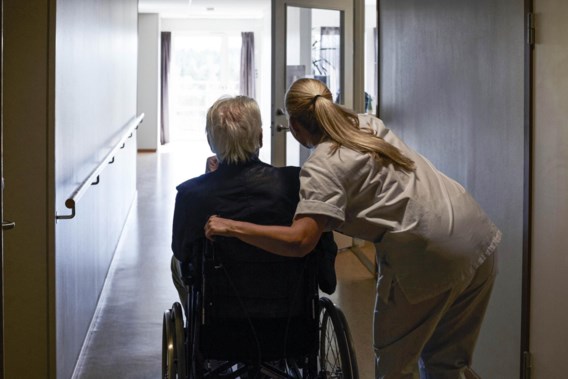Do residential care centers make too much profit? Last year there was a fuss about the residential care group Orpea, which is also active in our country. French investigative journalist Victor Cas-tanet revealed that this group managed to make a profit on public funds in France for years by saving on healthcare. Savings were even made on incontinence materials and food. The top of the company had been enriched by this for years. Concerns also arose about the so-called ‘management fees’, which large healthcare groups charge to their affiliated residential care centers.
The Flemish Minister of Welfare Hilde Crevits (CD&V) wants to exclude such profiteering at the expense of older and vulnerable people. The Flemish government approved its proposed decree on Friday, which states that making a profit on care in elderly care will be prohibited. It’s about the principle, the details will be worked out later through decisions by the Flemish government. There is a good chance that this will not be possible before the June elections.
The government’s motivation is twofold: there is no social support to realize profits or additional returns on care provision in residential elderly care, the minister says. Moreover, this healthcare component is mainly financed by the Flemish government, so it is not correct to derive profit from it.
The Healthcare Inspectorate will also be given additional authority to financially investigate “underlying entities”. This means: the investment companies that rent buildings to residential care centers and thereby earn large profits. Every service provided to residential care centers must be in line with the market.
Profit to invest
“The question is what the minister means by profit and what she means by care. The draft decree does not provide a definitive answer on this matter,” says Johan Staes, managing director of Vlozo, the umbrella organization of private residential care centers. Orpea and other large groups, such as Korian and Armonea, are also affiliated with Vlozo, as well as smaller private players. Staes emphasizes that he supports the principle: public resources for healthcare should always go back to healthcare. “But we don’t think that means that you shouldn’t try to work more efficiently and save money so that you can invest it again. For example in new technology.”
“I’ll give an example: a Belgian company has designed smart diaper technology, so you don’t have to unnecessarily wake residents at night. Residential care centers need a financial buffer to invest in such expensive healthcare technology.”
According to Vlozo, a profit on the hotel and living costs of residents should still be possible: “Otherwise the sector will no longer be attractive to investors. And without them we cannot cope with the future aging and silver economy in Flanders.”
Transparent accounting
Zorgnet-Icuro, the umbrella organization of charitable non-profit organizations, also says that residential care centers need profit in order to reinvest in care. Managing director Margot Cloet: “Because public resources are not enough. The government does not intervene in the full seniority of our nurses – the residential care centers themselves pay for the years after 16 years of service. Infrastructure and digitalization are also underfunded. We need that additional income to make ends meet. Especially now that our other source of income is also regulated: we have been allowed to index daily prices since this year, but at the same time they are limited. The government must still leave some room for entrepreneurship and not fall too far into regulitis.”
The ban on profits from healthcare is part of a package of stricter financial rules for the sector. Crevits wants residential care centers to also implement transparent accounting and is having a hundred of them start doing so, on a trial basis. It is allocating 12 million euros to support the centers in this regard. Her spokeswoman says that this result will make it clearer where the dividing line lies between hotel costs and healthcare costs. In the long term, this should also lead to invoices that show the difference, so that residents better understand what they are paying for.

